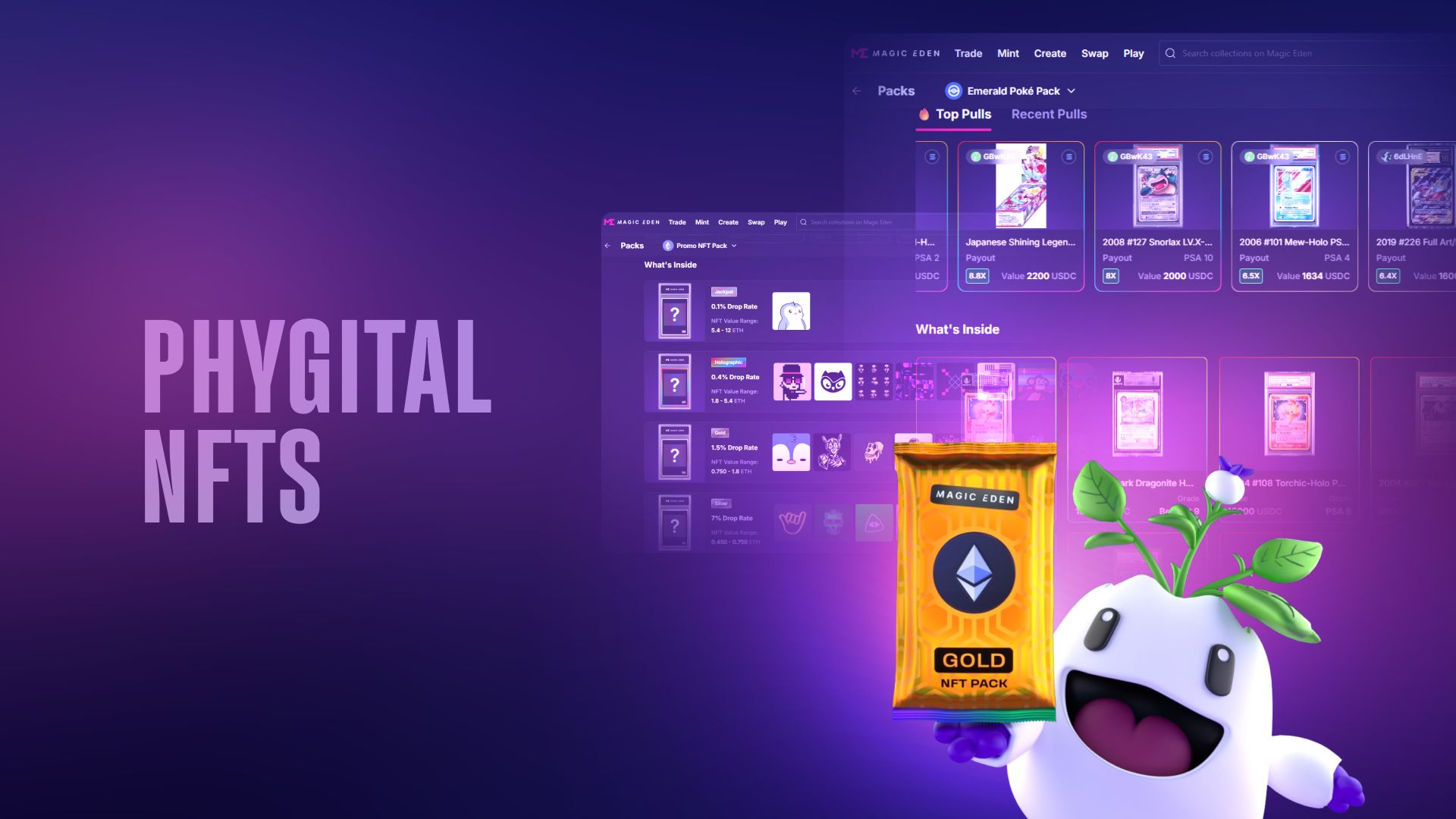
Setting up an Ethereum wallet is your first move if you want to get involved in the Ethereum ecosystem. With a wallet, you can store, manage, send and receive Ethereum-based tokens. Your wallet is also your ticket to exploring dApps, DeFi, and NFTs built on Ethereum.
Read on to learn what an Ethereum wallet is, what to look for when choosing one and how to set one up for yourself.
An Ethereum wallet is a digital wallet you use to store and manage ether (ETH) and other Ethereum-based assets.
Your Ethereum wallet is your gateway to all the cool stuff the Ethereum ecosystem has in store—from diving into DeFi protocols to earn yield to minting the hottest new NFT collection and so much more.
Think of your ETH wallet as your personal bank account for the Ethereum ecosystem. Your private keys are like your PIN, giving you access to your funds and letting you sign transactions. Meanwhile, your public key generates your Ethereum wallet address, which works like your bank account number for receiving funds.
Picking an Ethereum wallet for yourself comes down to what you want to use it for.
Different Ethereum wallets are suitable for different uses. However, there are certain aspects that all good crypto wallets should cover. Let’s take a look at those.
Whatever wallet you choose, it should be easy to use. The learning curve for managing digital assets can be steep, which makes it essential to pick a wallet with an easy-to-navigate interface. Magic Eden Wallet comes with a user-friendly interface that appeals to crypto beginners and veterans alike.
Security, which is arguably the most important factor to consider, is next on the list. Choose a wallet that takes the safety of your funds as well and has a strong track record of providing robust security features.
Unless you plan on trusting a third party with your funds, you need to choose a non-custodial Ethereum wallet to which you hold the private keys to. That way, you’re in the driving seat and have complete control of your digital assets.
Your wallet should also have a straightforward backup and recovery process to make sure you can always access your funds, even if you accidentally delete the app.
You ideally also want an Ethereum wallet that seamlessly connects to decentralized applications (dApps) like DeFi platforms and NFT marketplaces.
Finally, you need to decide what type of wallet you want. You have the choice between a software and a hardware wallet.
Software wallets, which include mobile wallets, desktop wallets and browser extensions, are ideal for active Ethereum users while hardware wallets are generally more suitable for long-term holders looking for additional security as hardware wallets hold their private keys offline.
Creating an Ethereum wallet is surprisingly easy and only takes a few minutes when you use a user-friendly wallet like Magic Eden Wallet.
Download and Install the Magic Eden Wallet.

You can download the Magic Eden Wallet as a browser extension on Chrome or the mobile app from the App Store (iOS) or Google Play (Android).
.png)
After installation, open the app and tap on ‘Create a New Wallet.’

Set a Strong Password. You'll be prompted to create a secure password. This password is crucial as you'll need it every time you access your Magic Eden Wallet.

Once your password is set, you'll navigate to secure your wallet with a 12-word recovery phrase which serves as a critical security backup.
It’s essential to write this phrase down and store it safely—anyone with this phrase can access your wallet.

Add Ethereum to Your Wallet.
In the Magic Eden Wallet, select Ethereum from the list of supported blockchains to add it to your dashboard. This allows you to manage your Ethereum-based assets.

You can fund your Ethereum wallet either by purchasing ETH directly through the wallet's integration with MoonPay or by transferring ETH from another wallet.
To do so, tap on the ‘Receive’ tab and choose Ethereum to generate your unique Ethereum address. Copy your public address to receive funds, or use the provided QR code to simplify transactions.
And that’s it!
Your Ethereum wallet’s all set up and you’re ready to explore the Ethereum ecosystem.
Magic Eden Wallet is a leading Web3 wallet that supports Ethereum and EVM-compatible blockchains, such as Polygon and Base. Available as a Chrome extension and a mobile wallet on Android and iOS, Magic Eden Wallet acts as your gateway to the Ethereum ecosystem.
Download Magic Eden Wallet and set up your Ethereum wallet today.
Creating an Ethereum wallet is like setting up your own bank account—but without the headaches or paperwork. First, decide which wallet you want to get. Once you've made your choice, download and install the app from the official site. Hit "Create New Wallet," and you’re set. You’ll create your Ethereum wallet, complete with a public address and a private key.
Getting an Ethereum wallet address is actually quite easy. All you need to do is download and set up an Ethereum wallet and your wallet will automatically generate a unique Ethereum address that typically starts with “0x.” This is the address you’ll use to send and receive Ethereum (ETH) and any other Ethereum-based tokens.
You can find it by navigating to the ‘Receive’ section in your Magic Eden wallet where it’s all laid out for easy access. Copy it, share it, and you're ready to start transacting.
Creating an Ethereum wallet takes only a few minutes. Once you’ve downloaded an Ethereum wallet app of your choice you can generate your Ethereum wallet address in just a few clicks.
Make sure to take some extra time to carefully write down and store your recovery phrase somewhere safe during the wallet setup process. While setup might be fast, learning how to keep your wallet secure is where you should invest a little more time.
Most Ethereum wallets are completely free, provided they are software wallets like Magic Eden Wallet. Download them directly from the official website or app store without spending a dime. However, if you’re opting for a hardware wallet like Ledger or Trezor, you’ll spend between $100 and $200 for the device.
No, an Ethereum wallet and an Ethereum account aren’t exactly the same thing. An Ethereum account is like your crypto “ID”—it’s the public key that lets you send transactions and hold assets on the Ethereum blockchain. Your Ethereum wallet, on the other hand, is what you use to manage one or more accounts.
So, in short, an Ethereum account is where your Ethereum assets live while your wallet is the housekeeper that keeps everything in check.
The information provided on this website is provided for general educational purposes only and is in no way financial or investment advice. Certain information may have also been provided to us or prepared by third parties; these materials are provided for convenience and are not an endorsement by Magic Eden. Magic Eden is not liable for any errors, changes or amendments to such information, including any actions taken in reliance on such information.


